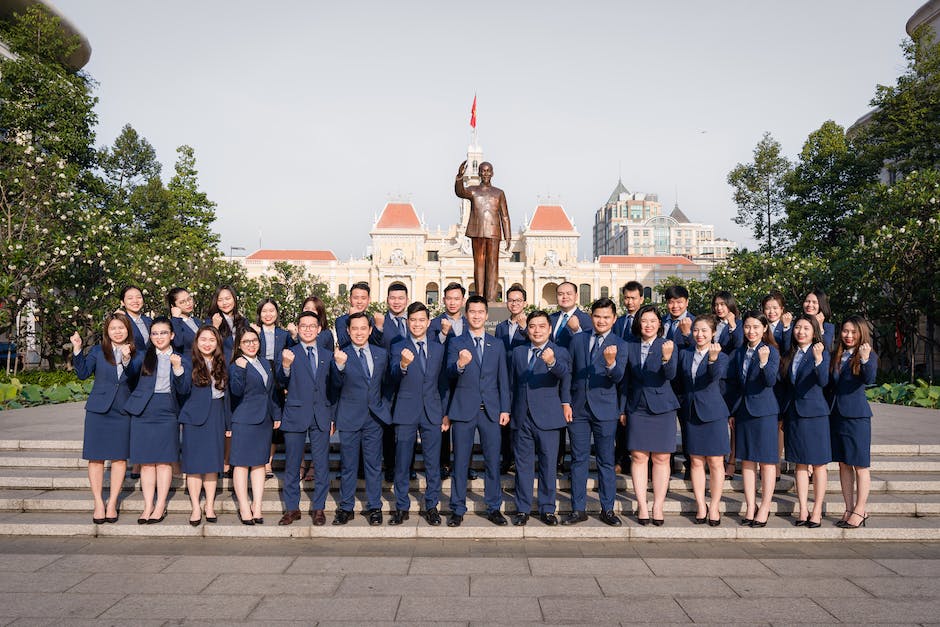Table of Contents
- Introduction
- Rethinking Recognition: The Power of Personalized Awards
- Beyond Trophies: Creative Ways to Reward Employees
- The Impact of Inclusive Awards on Company Culture
- Redefining Success: How to Measure and Reward Achievement
- The Future of Employee Recognition: Tech-Driven Awards Programs
- Sustainable Rewards: Eco-Friendly Alternatives to Traditional Trophies
- Celebrating Diversity: Awards that Honor Different Perspectives
- The Psychology of Rewards: Motivating Employees with Meaningful Recognition
- From Recognition to Retention: How Awards Can Improve Employee Engagement
- Q&A
- Conclusion
“Revamping Awards: Recognizing Excellence, Not Just Names”
Introduction
Revamping Awards: A Better Alternative to Namesake Rewards
In today’s competitive business landscape, companies are constantly looking for ways to motivate and reward their employees. Traditional namesake rewards, such as Employee of the Month or Quarterly Top Performer, may not always be the most effective way to recognize and incentivize employees. In this article, we will explore the concept of revamping awards as a better alternative to namesake rewards, and how this approach can lead to a more engaged and motivated workforce.
Rethinking Recognition: The Power of Personalized Awards
In today’s fast-paced and competitive work environment, employee recognition has become more important than ever. Recognizing and rewarding employees for their hard work and dedication is crucial for boosting morale, increasing productivity, and retaining top talent. However, traditional awards and recognition programs often fall short in truly motivating and engaging employees. This is where personalized awards come in.
Personalized awards are a unique and innovative way to recognize and reward employees for their contributions. Unlike traditional awards that are generic and lack meaning, personalized awards are tailored to each individual, making them more meaningful and impactful. By taking the time to understand each employee’s strengths, interests, and preferences, personalized awards can be customized to reflect their unique qualities and achievements.
One of the key benefits of personalized awards is that they create a sense of value and appreciation for the recipient. When employees receive an award that is specifically designed for them, they feel recognized and valued for their individual contributions. This can boost their self-esteem, motivation, and overall job satisfaction, leading to increased engagement and performance.
Another advantage of personalized awards is that they can help foster a positive and inclusive work culture. By recognizing employees in a personalized and meaningful way, organizations can show that they value diversity, creativity, and individuality. This can help create a sense of belonging and camaraderie among employees, leading to a more cohesive and collaborative team environment.
Research has shown that personalized awards can have a significant impact on employee engagement and retention. According to a study by Gallup, employees who feel recognized and appreciated are more likely to be engaged in their work and less likely to leave their jobs. By implementing personalized awards, organizations can create a culture of recognition and appreciation that motivates employees to perform at their best and stay committed to the organization.
In addition to boosting employee morale and engagement, personalized awards can also help drive performance and productivity. When employees are recognized and rewarded for their efforts, they are more likely to go above and beyond in their work. This can lead to increased productivity, improved performance, and ultimately, better business results.
When it comes to designing personalized awards, there are endless possibilities. Awards can range from custom plaques and trophies to personalized gifts and experiences. The key is to make the award meaningful and relevant to the recipient, so they feel truly appreciated and valued.
In conclusion, personalized awards are a powerful and effective alternative to traditional namesake rewards. By recognizing employees in a personalized and meaningful way, organizations can boost morale, increase engagement, and drive performance. In today’s competitive business landscape, personalized awards are a valuable tool for creating a culture of recognition and appreciation that motivates employees to excel. Organizations that embrace personalized awards are sure to reap the benefits of a more engaged, motivated, and productive workforce.
Beyond Trophies: Creative Ways to Reward Employees
Employee recognition is a crucial aspect of maintaining a positive work environment and boosting morale within a company. Traditionally, organizations have relied on awards such as trophies, plaques, and certificates to acknowledge the hard work and dedication of their employees. While these namesake rewards have been a staple in the corporate world for decades, there is a growing trend towards revamping the way employees are recognized and rewarded.
One of the main reasons for this shift is the desire to make employee recognition more meaningful and personalized. While a trophy or plaque may look nice on a shelf, it often lacks the personal touch that truly makes an employee feel valued and appreciated. By moving away from generic awards and towards more creative and personalized rewards, companies can show their employees that they are truly valued and that their hard work does not go unnoticed.
One alternative to traditional awards is experiential rewards. Instead of receiving a physical trophy or plaque, employees are rewarded with experiences such as a weekend getaway, tickets to a concert or sporting event, or a spa day. These experiential rewards not only show employees that they are valued, but they also provide them with a memorable and enjoyable experience that they can look back on fondly.
Another creative way to reward employees is through professional development opportunities. Instead of receiving a plaque for their hard work, employees can be rewarded with the opportunity to attend a conference, workshop, or training program that will help them further develop their skills and advance their career. Not only does this show employees that their hard work is appreciated, but it also helps them grow and succeed in their professional lives.
In addition to experiential rewards and professional development opportunities, companies can also consider implementing peer-to-peer recognition programs. Instead of awards being handed out by management, employees can nominate and recognize their peers for their hard work and contributions to the team. This not only fosters a sense of camaraderie and teamwork within the organization, but it also allows employees to feel more connected and appreciated by their colleagues.
Furthermore, companies can also consider implementing a points-based rewards system. Instead of receiving a one-time award, employees can earn points for their hard work and dedication, which can then be redeemed for a variety of rewards such as gift cards, merchandise, or even extra vacation days. This system not only allows employees to choose rewards that are meaningful to them, but it also provides them with ongoing motivation to continue performing at a high level.
Overall, revamping awards and moving away from namesake rewards is a positive step towards creating a more meaningful and personalized employee recognition program. By implementing creative and personalized rewards such as experiential rewards, professional development opportunities, peer-to-peer recognition programs, and points-based rewards systems, companies can show their employees that they are truly valued and appreciated. This not only boosts morale and engagement within the organization, but it also helps employees feel more connected and motivated to succeed in their roles. Ultimately, a well-thought-out and personalized employee recognition program can have a significant impact on the overall success and culture of a company.
The Impact of Inclusive Awards on Company Culture
In today’s competitive business landscape, companies are constantly looking for ways to attract and retain top talent. One way that organizations have traditionally done this is by offering awards and recognition programs to employees who demonstrate exceptional performance. However, many companies are now realizing that traditional awards programs may not be as effective as they once were in motivating and engaging employees.
One alternative that is gaining popularity is the concept of inclusive awards. Inclusive awards are designed to recognize and celebrate a broader range of achievements and contributions, beyond just individual performance. By focusing on inclusivity, companies can create a more positive and supportive work environment, where all employees feel valued and appreciated for their unique skills and contributions.
Research has shown that inclusive awards can have a significant impact on company culture. A study conducted by the Society for Human Resource Management found that organizations with inclusive awards programs reported higher levels of employee engagement, satisfaction, and retention. Inclusive awards can help to foster a sense of belonging and camaraderie among employees, leading to increased collaboration and teamwork.
One of the key benefits of inclusive awards is that they can help to break down barriers and promote diversity and inclusion within the workplace. By recognizing a diverse range of achievements, companies can create a more inclusive culture where all employees feel empowered to contribute their ideas and perspectives. This can lead to greater innovation and creativity, as employees from different backgrounds and experiences come together to solve problems and drive the business forward.
Inclusive awards can also help to boost morale and motivation among employees. When employees feel that their contributions are valued and appreciated, they are more likely to be engaged and motivated to perform at their best. Inclusive awards can help to create a positive feedback loop, where employees are inspired to continue to excel and contribute to the success of the organization.
Another benefit of inclusive awards is that they can help to create a more positive and supportive work environment. When employees see their colleagues being recognized for their achievements, it can create a sense of pride and camaraderie within the team. This can help to build a strong sense of community and belonging, where employees feel supported and encouraged to succeed.
Inclusive awards can also help to promote a culture of continuous improvement and learning within the organization. By recognizing a diverse range of achievements, companies can encourage employees to develop new skills and take on new challenges. This can help to foster a culture of growth and development, where employees are motivated to push themselves to reach their full potential.
Overall, inclusive awards can have a powerful impact on company culture. By recognizing and celebrating a diverse range of achievements, companies can create a more positive and inclusive work environment, where all employees feel valued and appreciated. Inclusive awards can help to boost morale, motivation, and engagement among employees, leading to greater collaboration, innovation, and success for the organization as a whole.
Redefining Success: How to Measure and Reward Achievement

In today’s fast-paced and competitive world, recognizing and rewarding achievement is more important than ever. Traditionally, organizations have relied on namesake rewards such as Employee of the Month or Salesperson of the Year to acknowledge outstanding performance. While these awards can be effective in boosting morale and motivation, they may not always be the most meaningful or impactful way to reward employees.
One alternative to namesake rewards is revamping the awards system to focus on more personalized and tailored recognition. By taking a more individualized approach to rewards, organizations can better align incentives with the unique goals and values of each employee. This can lead to a more engaged and motivated workforce, as employees feel valued and appreciated for their specific contributions.
One way to revamp awards is to shift the focus from generic titles to tangible rewards that are tailored to each employee’s interests and preferences. For example, instead of awarding Employee of the Month with a plaque or certificate, organizations could offer a choice of rewards such as extra vacation days, a gift card to a favorite restaurant, or a personalized professional development opportunity. By allowing employees to choose their own rewards, organizations can ensure that recognition is meaningful and relevant to each individual.
Another way to revamp awards is to incorporate more frequent and informal recognition into the rewards system. Instead of waiting for an annual awards ceremony to acknowledge outstanding performance, organizations can implement a system of ongoing feedback and recognition. This could include regular check-ins with managers, peer-to-peer recognition programs, or even a simple thank-you note for a job well done. By making recognition a regular part of the workplace culture, organizations can create a more positive and supportive environment for employees.
In addition to personalized and frequent recognition, organizations can also revamp awards by focusing on outcomes rather than inputs. Instead of rewarding employees based on arbitrary metrics or benchmarks, organizations can shift the focus to the impact of their work. This could include recognizing employees for achieving specific goals, exceeding customer expectations, or making a significant contribution to the organization’s success. By tying rewards to meaningful outcomes, organizations can ensure that recognition is based on real results and achievements.
Overall, revamping awards to focus on personalized, frequent, and outcome-based recognition can lead to a more engaged and motivated workforce. By tailoring rewards to individual preferences, incorporating regular feedback and recognition, and focusing on meaningful outcomes, organizations can create a more effective and impactful rewards system. This can help to boost morale, motivation, and productivity, leading to a more successful and thriving organization.
The Future of Employee Recognition: Tech-Driven Awards Programs
Employee recognition is a crucial aspect of maintaining a positive work culture and boosting employee morale. Traditionally, companies have relied on namesake rewards such as “Employee of the Month” or “Top Salesperson” to acknowledge outstanding performance. While these awards can be effective in some cases, they often lack personalization and fail to truly motivate employees. In recent years, there has been a shift towards revamping awards programs to incorporate technology-driven solutions that offer a more personalized and engaging experience for employees.
One of the key benefits of tech-driven awards programs is the ability to tailor rewards to individual preferences and interests. By leveraging data analytics and artificial intelligence, companies can gain insights into what motivates each employee and customize rewards accordingly. For example, an employee who values professional development may prefer a certificate for a training course, while someone who enjoys travel may appreciate a gift card for a weekend getaway. This level of personalization not only makes the recognition more meaningful but also shows employees that their contributions are valued on a personal level.
Furthermore, tech-driven awards programs can offer a more interactive and engaging experience for employees. Instead of simply receiving a plaque or certificate, employees can participate in virtual challenges, quizzes, or games to earn points towards rewards. This gamification element adds an element of fun and excitement to the recognition process, making it more memorable and enjoyable for employees. Additionally, by incorporating social features such as peer-to-peer recognition and leaderboards, employees can celebrate each other’s achievements and foster a sense of camaraderie within the team.
Another advantage of tech-driven awards programs is the ability to track and measure the impact of recognition efforts. By collecting data on employee engagement, performance, and retention rates, companies can gain valuable insights into the effectiveness of their awards programs and make data-driven decisions to improve them. For example, if a certain type of reward consistently leads to higher levels of employee engagement, companies can allocate more resources towards that particular reward to maximize its impact. This data-driven approach allows companies to continuously refine and optimize their awards programs to ensure they are achieving their intended goals.
In addition to personalization, engagement, and measurement, tech-driven awards programs also offer the benefit of scalability and flexibility. With traditional namesake rewards, companies are often limited in the number of awards they can offer and the frequency at which they can be given out. However, with tech-driven solutions, companies can easily scale their awards programs to accommodate a larger number of employees and recognize achievements in real-time. Whether it’s a small token of appreciation for a job well done or a major milestone achievement, tech-driven awards programs can be tailored to fit the needs of any organization.
Overall, revamping awards programs to incorporate technology-driven solutions offers a more personalized, engaging, and effective alternative to traditional namesake rewards. By leveraging data analytics, artificial intelligence, gamification, and social features, companies can create a recognition experience that is tailored to individual preferences, fosters a sense of camaraderie, and drives performance. With the ability to track and measure the impact of recognition efforts, companies can continuously refine and optimize their awards programs to ensure they are achieving their intended goals. As the future of employee recognition continues to evolve, tech-driven awards programs are poised to become the new standard for acknowledging and rewarding outstanding performance in the workplace.
Sustainable Rewards: Eco-Friendly Alternatives to Traditional Trophies
In recent years, there has been a growing trend towards sustainability and eco-consciousness in all aspects of life, including the way we recognize and reward achievements. Traditional trophies and awards, often made from non-recyclable materials like plastic or metal, are not only environmentally harmful but also lack creativity and personalization. As a result, many organizations are now turning to sustainable rewards as a better alternative to namesake trophies.
One popular eco-friendly alternative to traditional trophies is the use of recycled materials. By repurposing items like glass, paper, or even old electronics, organizations can create unique and personalized awards that not only reduce waste but also showcase creativity and innovation. Recycled trophies can be customized to fit the theme or purpose of the award, making them more meaningful and memorable for recipients.
Another sustainable option for awards is the use of biodegradable materials. Biodegradable trophies are made from natural materials like bamboo, cork, or even plant-based plastics that break down easily in the environment. These awards not only reduce the carbon footprint of the organization but also promote a message of environmental stewardship and responsibility. Biodegradable trophies can be just as elegant and sophisticated as traditional trophies, making them a stylish and eco-friendly choice for any award ceremony.
In addition to using recycled or biodegradable materials, organizations can also opt for digital awards as a sustainable alternative to physical trophies. Digital awards can take the form of virtual certificates, badges, or even personalized videos that can be easily shared and accessed online. Not only do digital awards eliminate the need for physical materials, but they also provide a more convenient and accessible way to recognize and reward achievements. Digital awards can be easily customized and personalized, making them a versatile and eco-friendly option for any organization.
Furthermore, organizations can also consider giving experiential rewards as a sustainable alternative to traditional trophies. Experiential rewards can include things like gift cards, travel vouchers, or even volunteer opportunities that allow recipients to create lasting memories and make a positive impact. By giving experiential rewards, organizations not only reduce their environmental impact but also promote a culture of giving back and personal growth. Experiential rewards can be tailored to fit the interests and preferences of each recipient, making them a thoughtful and meaningful way to recognize achievements.
In conclusion, revamping awards with sustainable alternatives is a better way to recognize and reward achievements in a more eco-friendly and creative manner. By using recycled or biodegradable materials, opting for digital awards, or giving experiential rewards, organizations can reduce their environmental footprint while also promoting innovation and personalization. Sustainable rewards not only benefit the environment but also create a more meaningful and memorable experience for recipients. As we continue to prioritize sustainability and eco-consciousness in all aspects of life, it is important to consider sustainable rewards as a better alternative to traditional trophies.
Celebrating Diversity: Awards that Honor Different Perspectives
In today’s society, diversity and inclusion are more important than ever. It is crucial to celebrate and honor different perspectives, backgrounds, and experiences. One way to do this is through awards that recognize and highlight the unique contributions of individuals from various walks of life. While traditional awards may have their place, there is a growing movement towards revamping awards to better reflect the diverse world we live in.
One of the main criticisms of traditional awards is that they often focus on a narrow set of criteria, such as popularity or industry connections. This can lead to a lack of diversity in the recipients, as those who do not fit the mold may be overlooked. By revamping awards to honor different perspectives, we can ensure that a wider range of voices are heard and celebrated.
One example of a revamped award is the Diversity in Media Awards, which recognizes individuals who have made significant contributions to promoting diversity and inclusion in the media industry. This award not only celebrates those who have broken barriers and paved the way for others, but also encourages others to follow in their footsteps. By shining a spotlight on these trailblazers, the Diversity in Media Awards are helping to create a more inclusive and representative media landscape.
Another example of a revamped award is the Gender Equality Leadership Awards, which honor individuals who have demonstrated a commitment to promoting gender equality in their respective fields. These awards not only recognize the achievements of those who have championed gender equality, but also inspire others to take action and make a difference. By highlighting the work of these leaders, the Gender Equality Leadership Awards are helping to drive positive change and create a more equitable society.
In addition to recognizing individuals, revamped awards can also celebrate organizations that are leading the way in promoting diversity and inclusion. The Corporate Diversity Excellence Awards, for example, honor companies that have implemented innovative and effective diversity and inclusion initiatives. By showcasing these organizations, the Corporate Diversity Excellence Awards are not only recognizing their efforts, but also setting a standard for others to follow.
Overall, revamping awards to honor different perspectives is a powerful way to celebrate diversity and promote inclusion. By recognizing individuals and organizations that are making a difference, these awards can inspire others to take action and create positive change. In a world that is becoming increasingly diverse, it is more important than ever to celebrate and honor the unique contributions of all individuals. Revamped awards provide a platform to do just that, and to ensure that everyone’s voice is heard and valued.
As we move forward, it is essential that we continue to push for awards that reflect the diverse world we live in. By revamping awards to honor different perspectives, we can create a more inclusive and representative society for all. Let us celebrate diversity and promote inclusion through awards that truly reflect the rich tapestry of human experience.
The Psychology of Rewards: Motivating Employees with Meaningful Recognition
In today’s fast-paced and competitive business world, employee recognition has become a crucial aspect of maintaining a motivated and engaged workforce. While traditional rewards such as bonuses, promotions, and employee of the month titles have been the norm for many years, there is a growing trend towards revamping awards to provide more meaningful and personalized recognition to employees.
Research has shown that employees are more motivated and engaged when they feel valued and appreciated for their contributions. However, generic rewards that are based solely on performance metrics or tenure may not always resonate with employees on a personal level. This is where revamping awards can make a significant difference in motivating employees and fostering a positive work culture.
One alternative to traditional rewards is to provide employees with personalized recognition that aligns with their individual interests, values, and goals. This could involve creating a system where employees are able to choose their own rewards based on their preferences, such as additional vacation days, professional development opportunities, or even charitable donations in their name. By allowing employees to select rewards that are meaningful to them, organizations can show that they value and respect their unique contributions.
Another approach to revamping awards is to focus on recognizing employees for their specific strengths and accomplishments, rather than simply rewarding them for meeting performance targets. This could involve creating awards that highlight qualities such as creativity, teamwork, leadership, or innovation, and celebrating employees who exemplify these traits in their work. By acknowledging and rewarding employees for their individual strengths, organizations can help to build a culture of appreciation and recognition that motivates employees to continue excelling in their roles.
In addition to personalized and strengths-based awards, organizations can also consider revamping their recognition programs to include peer-to-peer recognition. Research has shown that employees value recognition from their colleagues just as much, if not more, than recognition from their managers. By creating a system where employees can nominate and celebrate their peers for their contributions, organizations can foster a sense of camaraderie and teamwork that boosts morale and engagement across the entire workforce.
Furthermore, revamping awards can also involve incorporating elements of gamification into recognition programs. By creating friendly competitions, challenges, or leaderboards that encourage employees to strive for excellence and outperform their peers, organizations can tap into employees’ competitive spirit and drive for achievement. This can help to create a more dynamic and engaging work environment where employees are motivated to push themselves to new heights and continuously improve their performance.
Overall, revamping awards to provide more meaningful and personalized recognition to employees can have a significant impact on motivation, engagement, and overall job satisfaction. By focusing on individual interests, strengths, peer-to-peer recognition, and gamification, organizations can create a culture of appreciation and recognition that inspires employees to excel and contribute their best work. As the saying goes, “a little appreciation goes a long way,” and by revamping awards, organizations can show their employees that their hard work and dedication are truly valued and appreciated.
From Recognition to Retention: How Awards Can Improve Employee Engagement
Employee recognition is a crucial aspect of maintaining a positive work environment and fostering employee engagement. Traditionally, companies have relied on namesake rewards such as “Employee of the Month” or “Top Salesperson” to acknowledge outstanding performance. While these awards can be effective in boosting morale and motivation, they may not always be the most impactful way to recognize employees. In recent years, there has been a shift towards revamping awards to provide a more meaningful and personalized form of recognition.
One alternative to namesake rewards is the use of personalized awards that are tailored to the individual employee’s interests and achievements. This approach allows companies to show their appreciation in a more thoughtful and meaningful way, making the recognition more personal and memorable for the recipient. For example, instead of a generic “Employee of the Month” award, companies can create awards that highlight specific accomplishments or qualities that make each employee unique.
Personalized awards can also help to reinforce the company’s values and culture. By recognizing employees for behaviors and actions that align with the company’s core values, organizations can reinforce the importance of these values and encourage employees to embody them in their daily work. This can help to create a more positive and cohesive work environment, where employees feel valued and appreciated for their contributions.
In addition to personalized awards, companies can also consider implementing peer-to-peer recognition programs as a way to revamp their awards system. Peer-to-peer recognition allows employees to acknowledge and appreciate each other’s contributions, fostering a sense of camaraderie and teamwork within the organization. This type of recognition can be especially powerful, as it comes from colleagues who understand the challenges and successes of the job firsthand.
Peer-to-peer recognition can also help to build a culture of appreciation and support within the organization. When employees feel valued and respected by their peers, they are more likely to be engaged and motivated in their work. This can lead to higher levels of employee satisfaction and retention, as well as improved overall performance and productivity.
Another alternative to namesake rewards is the use of experiential awards, which provide employees with unique and memorable experiences as a form of recognition. Experiential awards can range from a weekend getaway to a cooking class to a spa day, depending on the interests and preferences of the recipient. These awards not only show appreciation for the employee’s hard work and dedication but also provide them with an opportunity to relax and recharge outside of the office.
Experiential awards can be a powerful tool for improving employee engagement and retention. By offering employees experiences that they can enjoy and remember, companies can create a lasting impact on their morale and motivation. This can help to build a positive and supportive work culture, where employees feel valued and appreciated for their contributions.
In conclusion, revamping awards to provide a more personalized and meaningful form of recognition can be a powerful way to improve employee engagement and retention. By moving away from traditional namesake rewards and towards personalized, peer-to-peer, and experiential awards, companies can create a more positive and supportive work environment where employees feel valued and appreciated. This can lead to higher levels of employee satisfaction, retention, and overall performance, benefiting both the employees and the organization as a whole.
Q&A
1. What is the purpose of revamping awards?
To provide a better alternative to namesake rewards.
2. Why are namesake rewards considered outdated?
Because they lack personalization and fail to recognize individual achievements.
3. How can revamping awards benefit employees?
By increasing motivation, engagement, and overall satisfaction in the workplace.
4. What are some examples of revamped awards?
Personalized trophies, certificates, experiences, or opportunities for career development.
5. How can companies implement revamped awards?
By conducting surveys, gathering feedback, and collaborating with employees to create meaningful recognition programs.
6. What are the key elements of a successful revamped award program?
Personalization, transparency, fairness, and consistency.
7. How can companies ensure that revamped awards are effective?
By regularly evaluating and adjusting the program based on feedback and results.
8. What are the potential challenges of revamping awards?
Resistance to change, lack of resources, and difficulty in measuring the impact of the program.
9. What are some best practices for implementing revamped awards?
Communicating openly with employees, setting clear criteria for recognition, and celebrating achievements publicly.
Conclusion
In conclusion, revamping awards to focus on meaningful recognition rather than just namesake rewards can lead to a more effective and motivating system for employees. By emphasizing the value and impact of the award, organizations can inspire greater performance and engagement from their workforce.




